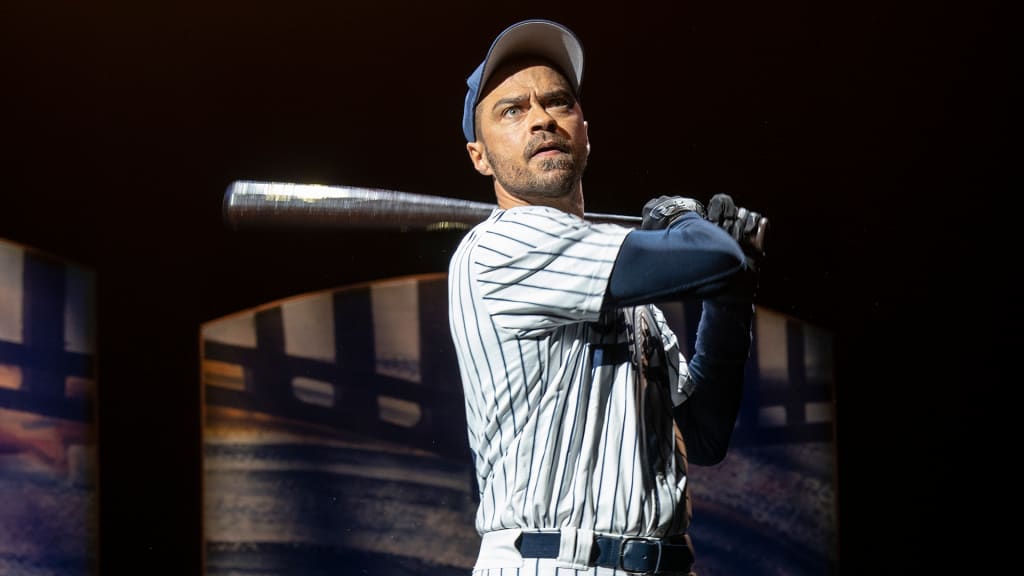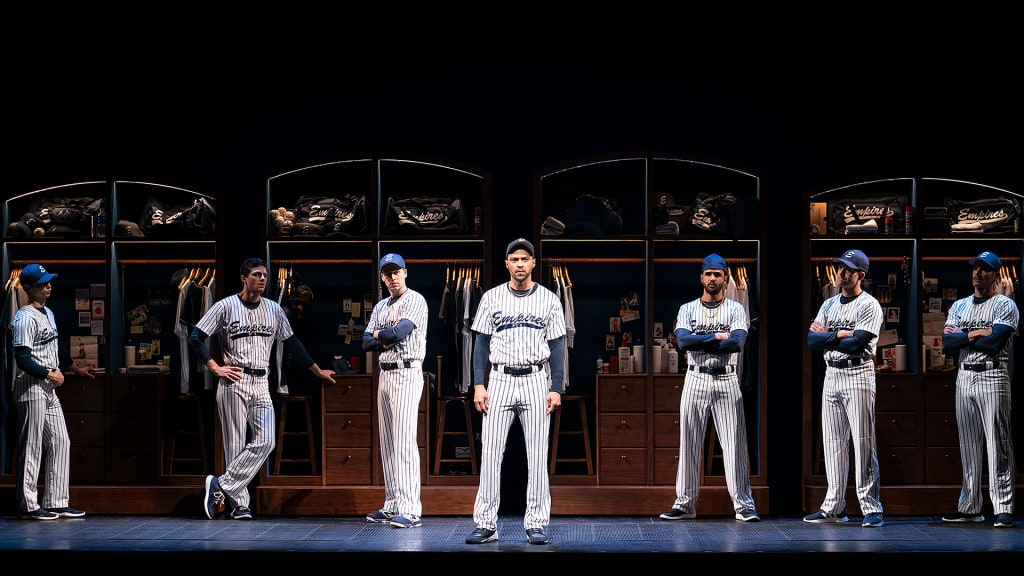
Normally in New York City, the Mets and Yankees are the only MLB teams in town. But for the past few months, the Empires have been suiting up at the Hayes Theater as part of the star-studded revival of “Take Me Out.”
Nominated for four Tony Awards and directed by nine-time Tony nominee Scott Ellis, “Take Me Out” is a revival of a 2003 Tony-winning production. It details the fictional story of Darren Lemming, the star center fielder for the Empires who comes out as gay, and the repercussions that this has on his team and his other relationships throughout the rest of their season.
Several big Hollywood names are among the play’s stars, including Jesse Williams (“Grey’s Anatomy”) as Lemming and Jesse Tyler Ferguson (“Modern Family”) as Lemming’s business manager Mason Marzac.
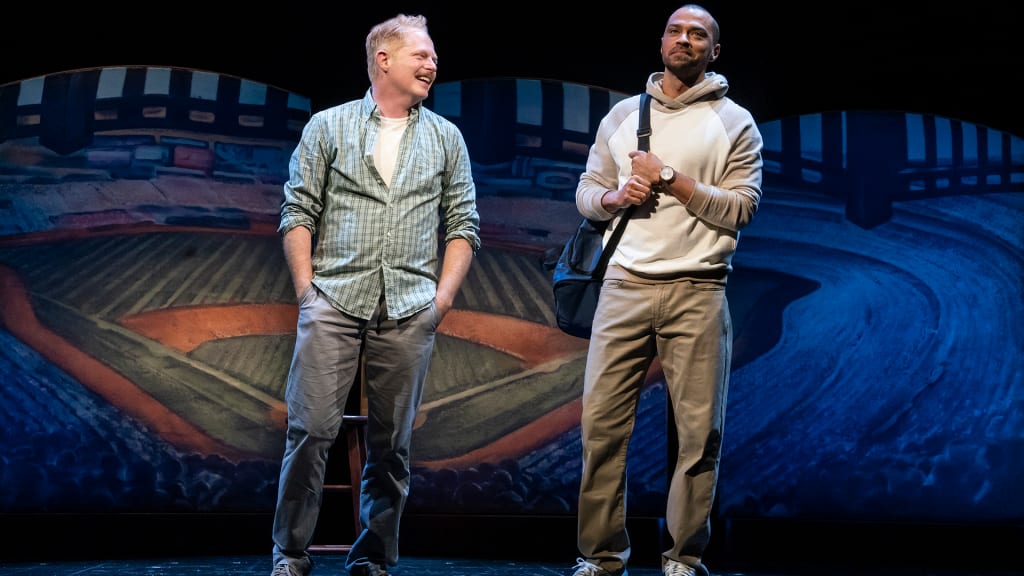
Though some cast members had a baseball background -- Williams grew up playing baseball, with his dad as coach -- many did not. To become immersed in the baseball world, the cast went to “baseball camp,” their own version of Spring Training. It took place at The Baseball Center in New York, where the actors were taught baseball skills by coaches who normally instruct young kids and teenagers.
“I said to the coaches, ‘They all need to do everything. I want them to be able to catch, hit [and] run,’” Ellis said in a recent interview with MLB.com. “I wanted the coaches to teach them, ‘This is a way to hit, this is the way to catch, this is how you would slide,’ because I knew all those things we would explore in rehearsals.”
The baseball instruction didn’t stop there. Ellis encouraged the cast to watch Ken Burns’ “Baseball” to get a feel for the game’s rhythm and history. Early on in the COVID-19 pandemic, Ellis watched Korea Baseball Organization games to stay connected to live baseball before MLB games returned.
Thanks to the Nederlanders -- who own several Broadway theaters and are part-owners of the Yankees -- the cast had a memorable outing at Yankee Stadium while the show was in previews. Their itinerary included viewing World Series rings, a behind-the-scenes tour and seeing the batting cages. But once the actors stepped onto the field, the impact of the outing and how it might inform their performances fully set in.
“It was a phenomenal day. … When we got back, you could see the difference because none of them had ever been on a [Major League] field. It changed certain things,” Ellis said.
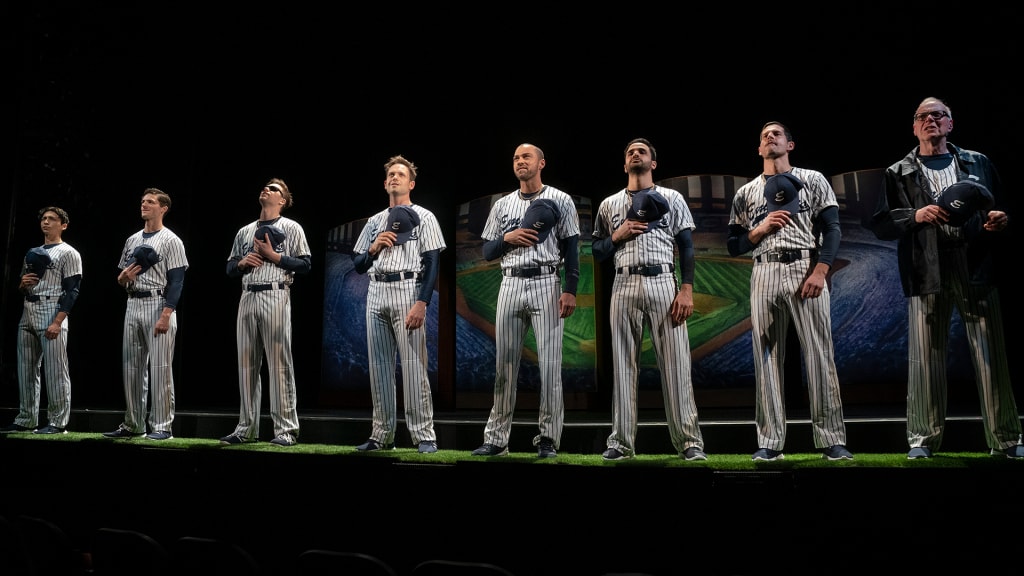
Throughout rehearsals, the cast combined baseball instruction with character exploration to form their personalized movements. While they didn’t emulate specific players -- though the windup of the fictional Shane Mungitt looks suspiciously similar to that of Craig Kimbrel -- great care was taken to ensure that the on-stage baseball action looked realistic.
In pitching sequences, the actors included familiar between-pitch motions like adjusting the brim of their hats, digging their feet into the “rubber” and licking their fingers to improve grip. The baseball action mimics a real game within the necessary limitations of live theater, with sound effects supplementing mimed pitching and hitting. Beyond the on-field scenes, much of the play takes place in a locker room, and the actors brought in personal items to make their characters’ on-stage lockers feel more like home.
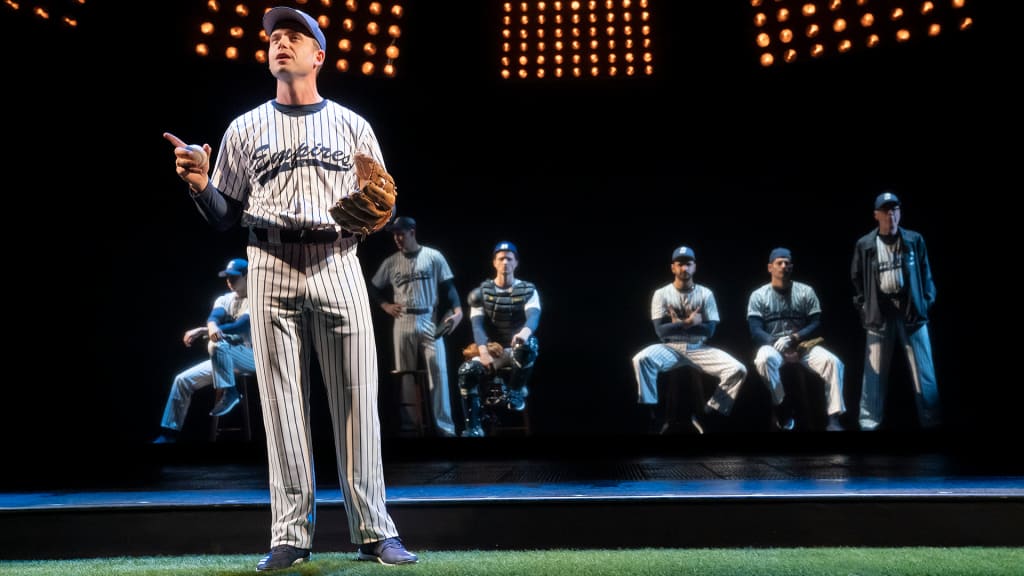
However, the full impact of “Take Me Out” comes not only from the baseball action, but also from its continued cultural relevance. When it first opened in 2003, no MLB player had publicly come out as gay during his playing career. But there had been a couple of near-examples, including Glenn Burke, who was out to teammates and coaches while playing and publicly came out as gay in 1982, and Billy Bean, who came out in 1999 after his career ended in '95 and later became MLB’s first “Ambassador for Inclusion.”
During one rehearsal, Bean spoke to the cast about being in the closet, coming out after his career ended and his overall life in baseball, which Ellis described as “incredibly moving” and “a remarkable morning.”
“The play is focused on someone who's coming out in this sport. Here you have someone who wasn't able to during that time, and [Bean] brought it home,” Ellis said. “[For] any player to get to [the Majors] takes so much focus, so much time, so much commitment, that if you thought for one moment that [coming out] was going to jeopardize you not being able to play, it would be a different decision during that time. It's still tricky now.”
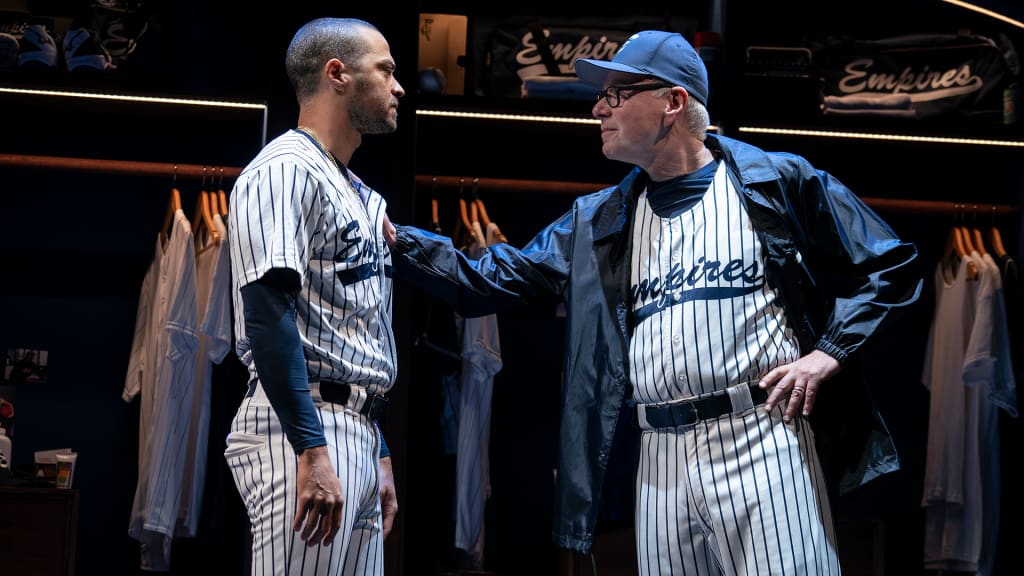
Bean also talked about how there are still MLB teams who don’t have Pride Nights, and how many baseball players are from countries where being publicly gay is taboo. The diversity in the sport that is often celebrated, Ellis noted, can also lead to challenges regarding players’ identities and how they might be accepted, or not, by those from different cultures.
“That fear of coming out in a sport is still very high,” he said.
Nearly two decades after the original Broadway production, there have still been no MLB players to come out as gay during their playing careers. Though Ellis hopes that his production will have a lasting impact on its audience, he also hopes that baseball progresses to where a star player coming out during his career won’t seem as novel as it does in “Take Me Out.”
“Many plays and musicals have an expiration. … The further you get away from them, there’s less reason to tell the story. My wish is the play expires,” Ellis said. “I hope in another 20 years, people will look at it and go, ‘Boy, that was then, that’s not how it is now.’”
